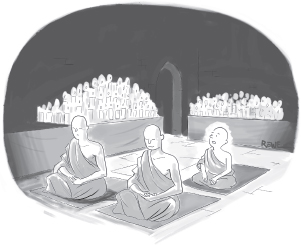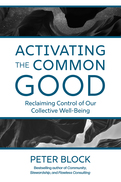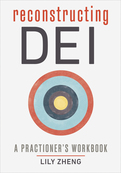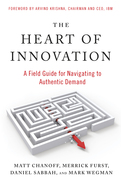
Download PDF Excerpt
Rights Information
The Magic of Tiny Business
You Don t Have to Go Big to Make a Great Living
Sharon Rowe (Author)
Publication date: 05/08/2018
—Seth Godin, author of Linchpin
Too many of us feel trapped by work that keeps us from living our purpose. We fantasize about starting our own business, yet we're warned against falling into debt, working eighty hours a week, and coping with the pressure to grow. Eco-Bags Products founder Sharon Rowe says there's another way: go tiny.
Like a tiny house, a tiny business is built on maintaining a laser focus on what is essential by living an intentional life. As an entrepreneur and mother, Rowe is most concerned with putting family first, maintaining financial security, and doing something that makes an impact in the world. Using the success story of Eco-Bags Products, Rowe distills the step-by-step process of building a profitable, right-scaled, sustainable venture that doesn't compromise your values. She shows you how to test your concept, manage your money and priorities, and more, while staying true to the "tiny" ethos.
Find out more about our Bulk Buyer Program
- 10-49: 20% discount
- 50-99: 35% discount
- 100-999: 38% discount
- 1000-1999: 40% discount
- 2000+ Contact Leslie Davis ( [email protected] )
—Seth Godin, author of Linchpin
Too many of us feel trapped by work that keeps us from living our purpose. We fantasize about starting our own business, yet we're warned against falling into debt, working eighty hours a week, and coping with the pressure to grow. Eco-Bags Products founder Sharon Rowe says there's another way: go tiny.
Like a tiny house, a tiny business is built on maintaining a laser focus on what is essential by living an intentional life. As an entrepreneur and mother, Rowe is most concerned with putting family first, maintaining financial security, and doing something that makes an impact in the world. Using the success story of Eco-Bags Products, Rowe distills the step-by-step process of building a profitable, right-scaled, sustainable venture that doesn't compromise your values. She shows you how to test your concept, manage your money and priorities, and more, while staying true to the "tiny" ethos.
Sharon Rowe is the CEO of Eco-Bags Products, Inc., which she founded in 1989. In 2010 the company became a certified BCorporation.
ECOBAGS® is the original reusable bag brand. Sold worldwide, it is recognized as “Best for The World” by BCorporation for social and environmental commitments and standards.
Sharon is a thought leader in social innovation and sustainable and responsible production. She speaks regularly on building profitable, mission- and value-aligned businesses. Sharon believes that business is a currency for ideas that shape culture and can be used as a force for good. Her speaking engagements have taken her wide and far—from Yale University to Sing-Sing Prison and from the Nairobi Center for Innovation in Kenya to the Social Venture Institute conference in the Hudson Valley.
She has been featured in Time Magazine, Glamour Magazine, The Wall Street Journal, Entrepreneur Magazine, on NPR – Air America, and in the award-winning documentary, “BagIt.” ECOBAGS® were also featured on The Oprah’s Winfrey Show’s first Earth Day episode in 2007.
Sharon has received numerous awards, including the National 2012 Enterprising Woman, CBS Radio Women’s Achievement, Westchester Business Council Entrepreneur of the Year, 914Inc-Westcheser Magazine Most Accomplished Women, the Women’s Enterprise Development Center’s Lilian Vernon Award, and The Westchester Collaborative Theatre’s Most Valuable Player.
Sharon is an active member of the Social Venture Network and the Women’s President’s Organization. She has served on The Hudson River Sloop Clearwater board and is on the Westchester Collaborative Theatre board.
Sharon lives in the Hudson Valley with her husband Blake, a musician and teacher. Her two grown children, Eva and Julian, are living out of state, pursuing their interests. Eva, a civil engineer is focused on sustainable design. Julian, a cartoonist published in The New Yorker Magazine, contributed to this book.
—Seth Godin, author of Linchpin
“Using the success of Eco-Bags Products, Rowe distills a step-by-step process for building a profitable, sensibly scaled, sustainable venture that doesn't compromise your values or take over your life. She shows readers how to test a concept, and manage money and priorities, while staying true to the 'tiny' movement ethos.”
—Kate Harrison, Forbes
“Tiny Business Is Serious Business. There are 'small' businesses. Then there are 'tiny' ones, concerned about the personal and social impact they make.”
—Entrepreneur
“Ask Sharon Rowe, who founded ECOBAGS 30 years ago, and she'll tell you that there's absolutely nothing wrong with being a tiny business…in her new book, The Magic of Tiny Business: You Don't Have to Go Big to Make a Great Living, she writes that too many of us feel like we need to build huge businesses in order to feel successful, which is crazy considering over a million small businesses sell on Amazon. So why not rethink your strategy and embrace the idea of building a tiny company?”
—Lambeth Hochwald, Inc.
“Honest, intentional, and downright brilliant, this book is a must-read for any entrepreneur dedicated to launching a value-driven organization in an ever-changing world. Sharon has built a masterful guide to finding the optimal balance between purpose and profit.”
—Onyeka Obiocha, Director of Innovation, Yale University Center for Public Service and Social Justice
“This is the best business book I've ever read. It's Essentialism and Start with Why meet Good to Great with a sensibility for the way life actually unfolds. From comic storytelling to pinpointed nuggets of wisdom, The Magic of Tiny Business is a book to keep on hand. One read through prepares the reluctant and curious to-be founder for what's to come. Down the road, opening any page and reading any sentence will offer a touchpoint of sanity that every businessperson needs.”
—Caroline Duell, founder and CEO, All Good
“As a company that started with only $350—and that today provides funding to emerging women-owned businesses—we agree that tiny businesses are magical. They have the power to change the world through their vision and passion. Sharon Rowe is living proof that tiny businesses can, indeed, serve the greater good while serving their bottom line.”
—Amy Hall, Director, Social Consciousness, Eileen Fisher, Inc.
“The Magic of Tiny Business is a compelling story of true entrepreneurship that is relatable, inspiring, and full of simple, practicable steps to living your desired business journey. It helps us look inside ourselves and inside the business as to what matters really in making a great living without losing our mind along the way! Sharon guides us through a story that can only make your business better and help you reflect on the journey of a life worth living!”
—Henry Cross, Executive Director, Hosh Yoga and Hosh Kids
“There's nothing tiny about the vision behind this inspirational book that's part memoir and part how-to guide for dreamers who yearn to be doers and start up their own businesses. Authentic, transparent, and funny at times, Rowe will entertain as well as inspire you to action with her stories from the trenches and lessons learned over her successful career as a mission-based business owner and thought leader. This book's premise is the antithesis of the ‘go big, go broke' or ‘go big, go home' masculine concepts that define what it means to be a winner. Instead, Rowe challenges her readers to define what success means for them and then build a business to support a balanced vision. Anyone who believes that time is worth more than money is a great candidate for reading this book. So if you're itching to do something with your life that lights up your passion and provides a paycheck, settle in for a good read. Keep a pen and paper at your side because you're going to have tons of actionable ideas flowing your way page by page!”
—Sandra Ann Harris, founder of ECOlunchbox
“Sharon challenges the Wall Street mindset of how businesses should grow and should be run. This is an inspiring book for all entrepreneurs looking to embrace an alternative paradigm—where tiny businesses are sustainable, purpose-driven, and successful.”
—Nona Lim, founder and CEO, Nona Lim Foods
“‘Begin with your life in mind' is the mantra that drives this book. I love the mix of (true) anecdotes, exercises, and challenging questions that poke holes in the traditional assumptions about business success. The magic of the tiny business approach is the intentional commitment to grow our companies in a way that supports the quality of our lives.”
—Ellen Ornato, Founding Partner, The Bolder Company
“The writing was an appealing mix of Zen-like wisdom and practical, actionable business advice. The overall effect was honest, human, useful . . . food for thought, a manifesto for action, and a blueprint for success in one book!”
—John Ford, Dovetail Publishing
“Craft the life you want—with a business to support it. It's the message we all need to hear.”
—Susan Danziger, founder and CEO, Ziggeo.com
“The Magic of Tiny Business offers much-needed relief from a dreary life pursuing business as usual. Rowe proves it is not only okay to prioritize a high quality of life and an honorable vocation, but it is exactly this magic combination that makes it all worthwhile. I encourage people to follow the simple and timely principles of this book.”
—Shawn Berry, cofounder/worker-owner, LIFT Economy
“If you're an entrepreneur, founder, or aspiring leader, Sharon Rowe will remind you why you love business and how much good you can do in the world—at any size.”
—Corey Blake, founder and CEO, Round Table Companies
“A delightful wake-up call to what's possible when you want big impact, big satisfaction, and big fulfillment done your way. With Sharon Rowe, tiny but mighty takes on a whole new meaning! Sharon shows you how to have a beautiful business that is a blessing to your staff and your community no matter how big or how small it may be.”
—Dr. Judith Wright, coauthor of The Heart of the Fight
“A definitive book. Tiny business is big business!”
—Karen Sands, MCC, BCC, leading GeroFuturist, bestselling author, thought leader, and speaker
“In a business world often defined by an ethos of ‘move fast and break things,' The Magic of Tiny Business is a welcome invitation to rethink how business is built and how we define success. The assumption that building a business means embracing rapid growth and scaling leaves out the opportunity to build something more intentional and personally meaningful. Through her book, Sharon Rowe translates the wisdom she has gained over her years in business into a practical guide and gentle nudge to get going on building a business that will fulfill you.”
—Jessica Quinn, Managing Director, Civic Hall
“Rowe's book is a refreshing perspective on entrepreneurship, reminding both new and experienced founders to take a deeper look at what it means to be successful, happy, and impactful in our work.”
—Desiree Vargas Wrigley, founder of Pearachute
“The Magic of Tiny Business is a practical, hands-on guide to launching and running an impact business (so your business doesn't run you).”
—Denise Taschereau and Sarah White, cofounders of Fairware
“Sharon shows us the magic that unfolds when we use business to serve us and are not servants to it.”
—Rose Penelope L. Yee, CEO, Green Retirement, Inc.
“Building a business that solves social or environmental problems can be a daunting endeavor. The Magic of Tiny Business confronts the fears commonly faced by entrepreneurs who strive to change the status quo. Through her personal journey of creating and growing her business, Eco-Bags Products, Sharon Rowe shares pearls of wisdom on how to zero in on the mission while maintaining a balanced lifestyle.”
—Alisa Gravitz, President and CEO, Green America
“How lucky are today's entrepreneurs to have this gift of reflection, inspiration, and practical guidance for their journey? Sharon articulates the grand purpose behind a ‘tiny business'—an entrepreneur's North Star. In the constant-swirling mind of a business owner, Sharon's words are calming and a reminder of how to focus on what's important and define success in our own terms.”
—Rebecca Rodskog, cofounder of FutureLeaderNow and founder of 12@12
Chapter One
What Is a Tiny Business?
“
Go big or go home is a prevailing but tired and misleading cultural myth.
”
Risk everything. Don’t even bother to try otherwise.
Fight your way to the top.
Be aggressive.
And If You Don’t Succeed . . .
You’re done.
You’re ruined.
You lose.
You’ll never be successful.
No one wants to be your friend (aww).
Have I scared you? Going big is not for everyone. It wasn’t for me—not like that.
But what if someone asked you: What sparks, excites, invigorates, or inspires you?
And what if I showed you a way to be different in business that also led to success? A way that allowed you to take one step at a time instead of risking everything all at once while leaping into the unknown? A way that lets you intentionally build what you want, going slow and steady, and only picking up the pace when you’re ready?
You can have your cake and eat it too. With a Tiny Business, you can make a good living and have a great life.
What a Tiny Business Is
1. Born out of crystal-clear priorities for what you want out of life.
2. Makes you a living and still gives you the space to live.
3. Puts your energy into something that matters exquisitely to you.
4. Grows at your own pace and in alignment with your life priorities.
5. Business on your terms—that fits your life.
What a Tiny Business Is Not
1. Born solely out of the need for a paycheck.
2. Requires you to push aside everything else important in your life.
3. Puts all your energy into making money.
4. Grows for the sake of growth without consideration for your other life priorities.
5. Business on business’s terms—that you have to work your life around.
Building Market Value with YOUR Values
Tiny is a laser-focused, disciplined approach centered on making your work work for you. It is rooted in your priorities and supported with tested business acumen. It’s a way to start, run, and grow a business where you can stand for something and create a scalable working asset without working 24/7. Tiny Business is a big opportunity; it’s your opportunity to drive the bus. You get to build market value with your values.
“
Tiny does not define the amount of revenue you generate—that can be as big as your aspirations.
”
Like the Tiny House movement, the first step is getting clear on your priorities. What do you want in your life and your business now and with an eye toward the future? Like a Tiny House, there are things you need to have and things that are nice to have. If your Tiny Business is a journey and you have one small bag to pack for one full year, what needs to be in it?
What’s most important to you?
What are you working for really?
What is your “why”?
Tiny Business is how you make a living, not a killing.
”
With a Tiny mindset, you start with what’s most important, both personally and professionally, and you regularly visit those priorities for all decisions. You practice discipline by setting a schedule, sticking to it, and getting to work. You build something you are connected to—emotionally, psychologically, and physically—something that feeds your energy.
You select what’s essential and then you intentionally remove the obstacles, noise, and clutter—real or imagined. You consciously limit your business and your life to only what you need and want. This is how you create and live an intentional life with less.
“Rich . . . It’s about having enough money to live your best life.”
—Amy Adeyemi, Toro Communications
What I wanted was
 A flexible schedule
A flexible schedule
 Nights and weekends free plus at least four weeks of vacation
Nights and weekends free plus at least four weeks of vacation
 To put my family first (e.g., not missing school plays)
To put my family first (e.g., not missing school plays)
 Time for self-care (daily swim and meditation)
Time for self-care (daily swim and meditation)
 To believe in what I’m doing 100 percent
To believe in what I’m doing 100 percent
 To solve a problem without creating new ones
To solve a problem without creating new ones
Yes, I wanted it all. It took a lot of work and a lot of discipline, and I got it.
Tiny Business is serious business. It’s complex. It’s not an easy, by-any-means-possible, get-rich-quick approach. It is weighted in your values and takes a long view requiring patience and persistence. But once you get clear on what you want, commit to it, and roll up your sleeves, you will begin to see the abundance of resources available to support you and connect you to a like-minded community.
What Matters Most To You?
Here’s a picture that maybe describes you . . .
You’ve got an itch to do something bigger, but you also need to make a living. There’s probably a lot of fear around changing things up, depending on what (and who) you’re responsible for. I’m certain there’s a lot of excitement bubbling around your passion too. Tiny Business is an opportunity to embrace and focus this energy to support you.
If you feel like you’re ready to start but you can’t put your finger on what’s stopping you, that means you need to take a break and unpack what you’re asking of yourself.
Start with what you want in life and work.
 Time and money to travel
Time and money to travel
 Coming home for dinner every night
Coming home for dinner every night
 Bringing your dog to work
Bringing your dog to work
 Easy or no commute
Easy or no commute
 Working for a brand or business you believe in
Working for a brand or business you believe in
If that doesn’t feel comfortable, start with what you don’t want.
 Limited vacation
Limited vacation
 Forty-plus hour workweeks
Forty-plus hour workweeks
 Working in a cubicle
Working in a cubicle
 Long commute
Long commute
 Spending your time on a brand or business you don’t trust or believe in
Spending your time on a brand or business you don’t trust or believe in
Keep on adding to your lists.
Next, look at your relationships to critical business concepts. What is your understanding and experience of . . .
 Money
Money
 Risk
Risk
 Profit
Profit
 Success
Success
This stuff seems pretty basic and easy to tick off, but it is very loaded when you dive in.
Begin these conversations with yourself gently at first, but go deeper when you see yourself starting to move away. Do free writing.1 Keep a journal or, if you’re visual, sketch it out or make a collage. Nothing you write, say, draw, or compose will be wrong or right. This is the vulnerability needed to open up and spark what you really want for your life, your business, and the world. This is the foundation of a Tiny Business.
Challenge Your Assumptions
I’m suggesting you start a new and honest relationship with yourself to tackle important conceptual business blocks. Don’t be lazy and settle for vague definitions or rely on what you think mainstream culture says.
For example, if you have no idea what “risk tolerance” means, then acknowledge that that’s your relationship with this concept right now.
“
You don’t need to know everything to start, but you must have a handle on what you know and don’t know.
”

“Are we here yet?”
This is an ongoing process, which I learned the hard way.
Business concepts have deep cultural roots and can trigger very personal reactions. The tendency with unexamined concepts is to avoid thinking about them until absolutely necessary, then reacting emotionally when situations arise.
When situations arise and decisions need to be made, you want to be in the most prepared position possible in order to respond with well-thought-out responses. Start this work when you’re not under pressure to respond to anything urgent, and trust that your understanding will grow with time.
Break It Down (Tiny Steps)
The lesson here is incrementalism: break everything down so there is meaning for you. It’s about learning how to take tiny steps, starting a personal relationship with your concepts and challenging assumptions so you can pick your best path forward.
Here’s where I started:
Money: I didn’t have enough, couldn’t seem to make enough, and didn’t understand what I had—or did not have—access to. This made me feel very uncomfortable. I lied to friends, saying I couldn’t go out because I was busy when really I was just broke. I quickly realized that with a business I would have to use and manage borrowed money (i.e., debt) for growth. This started my next conversation on risk.
Before you move to the next conversation, first answer these questions for yourself.
 Do you have money to invest in your business?
Do you have money to invest in your business?
 Do you have access to money? If your answer is yes, list all the people and places you can get it and how much from each.
Do you have access to money? If your answer is yes, list all the people and places you can get it and how much from each.
 What’s your relationship to having or not having money?
What’s your relationship to having or not having money?
 What’s enough money?
What’s enough money?
 What’s your stretch goal and what will it get you?
What’s your stretch goal and what will it get you?
Business is currency for ideas.
—Me
Risk Tolerance: I had no real idea what my risk tolerance with money was. I’d failed plenty of auditions but those nicked my heart, not my bank account. Being asked to describe my tolerance for risk on a scale from 1 to 10 held no meaning to me. I didn’t have anything to lose yet. Like a three-year-old skiing, I was close to the ground. Now, I work with forecasts to analyze and manage risk.
 Are you financially secure right now?
Are you financially secure right now?
 If so, for how long?
If so, for how long?
 How much do you need now and three months from now?
How much do you need now and three months from now?
 How much can you afford to lose or put toward an opportunity?
How much can you afford to lose or put toward an opportunity?
 What are you willing to risk being without right now?
What are you willing to risk being without right now?
Financial Security: Initially this meant paying basic bills plus a little extra for playing. Then it grew to include mortgage and tuition payments, savings, and access to credit. What stage are you in?
 What is the dollar amount on your monthly need to haves (essentials) versus want to haves (desires)?
What is the dollar amount on your monthly need to haves (essentials) versus want to haves (desires)?
 What does the space between those two figures tell you?
What does the space between those two figures tell you?
 How will your essentials and desires change over the next twelve months?
How will your essentials and desires change over the next twelve months?
Profit: Don’t consume it, use it.
I confused profit with compensation for years. I disregarded the sage advice of “pay yourself first,” totally missing the point of rewarding yourself for your work, no matter the amount. After thirty years in business, I have learned to actively promote paying yourself first. You must put air in your tires or you won’t be able to drive the car. But the amount you pay yourself is another discussion. Pick a percentage for your compensation: gross revenue minus your compensation minus expenses equals profit. Think of profit as the asset you can use to build your business.
 What’s your current understanding and definition of profit?
What’s your current understanding and definition of profit?
 What are your expenses?
What are your expenses?
 What are you paying yourself?
What are you paying yourself?
 How can you use your profits to grow your business?
How can you use your profits to grow your business?
Success: Success for me meant having the resources for the experiences I wanted now and in the future. Flexibility and good health have been key, allowing for both camping and five-star hotel stays. Now, success includes having a platform and the time to share with an audience what I’ve learned. Practice painting a picture of what success looks like for you on a daily basis.
 Three years from now, what do you want success to look like?
Three years from now, what do you want success to look like?
 Think of yourself at age eighty. What has made your life successful?
Think of yourself at age eighty. What has made your life successful?
The French Press Story
An old friend and I were talking about what it would be like to live on a boat for more than a week. She said, “So long as I have my French press, I’m good. No matter how wet, rocky, steamy, or smelly the boat gets, if I can have a hot cup of java from my French press in the morning, all is good in the world.”
What’s your French press, the one thing that can make you feel like everything is okay in the world?
Create a list of things that make you happy, no matter what.
Here’s my list:
 Weekends to chill out and be with family and friends
Weekends to chill out and be with family and friends
 Beach weeks—it has to be more than a week
Beach weeks—it has to be more than a week
 Swimming every day in the summer
Swimming every day in the summer
 Dinners by the river at sunset
Dinners by the river at sunset
 Buying food at the farmer’s market
Buying food at the farmer’s market
 Cooking at home
Cooking at home
 The ability to buy things, regular things, when I need them (I’m okay with having to save for bigger items)
The ability to buy things, regular things, when I need them (I’m okay with having to save for bigger items)
 Acting and going to the theater when I can
Acting and going to the theater when I can
 Visiting friends
Visiting friends
 Hiking
Hiking
 Traveling, whether it’s close to home or far away
Traveling, whether it’s close to home or far away
Figure out what the essentials and desires are on your list. Make sure the essentials are part of your “why.” And don’t compromise.













